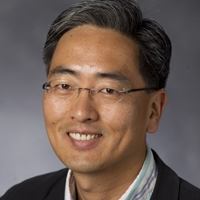Abstract: Fundamental advantage of utilizing quantum resources for computation and communication has been discovered in the last two decades, and experimental demonstration of representing and manipulating quantum bits in physical systems and simple quantum algorithms followed. While the experimental research in this field has progressed at a rapid pace, the notion of a practical information processor based on quantum physics still faces tremendous amount of challenges. Construction of a scalable quantum information processor is a system design challenge that requires cutting-edge technology guided by engineering principles, with multidisciplinary expertise in quantum physics, computer architectures and integrated microsystems technology. In this talk, I will discuss the issues associated with designing and constructing a realistic quantum information processor, and some of the technology progress made to date. I will present micro-electromechanical systems (MEMS), micro-optics and photonics technology applied to integration of qubits represented by atomic ions trapped in a ultra-high vacuum chamber.
Biography: Prof. Jungsang Kim received his Ph.D. degree in Physics from Stanford University in 1999, where he demonstrated the first semiconductor-based single photon sources, and advanced single photon detectors for quantum optics experiments. Prior to joining Duke University in 2004, he was a Technical Manager at Bell Laboratories, Lucent Technologies, where he worked on MEMS technologies applied to optical communication systems, and advanced basestation architectures for wireless communications. At Duke University, he leads several research projects related to multi-functional integrated systems, including scalable quantum information processing based on trapped ions, MEMS technology for atom-based quantum information processing, and advanced photon detectors for quantum communications.


